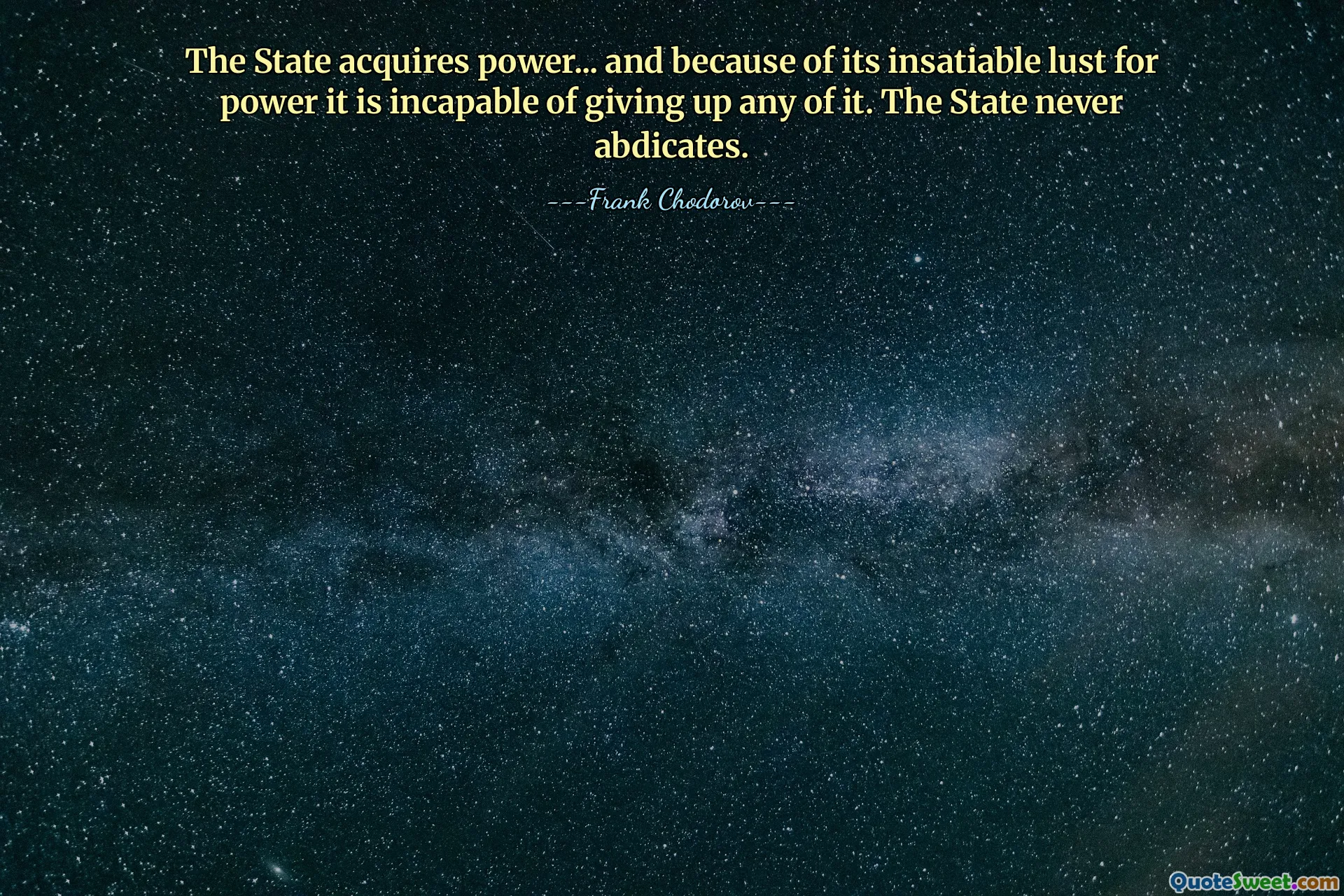
The State acquires power... and because of its insatiable lust for power it is incapable of giving up any of it. The State never abdicates.
This quote touches on the enduring nature of political authority and the inherent tendency of state institutions to seek and maintain power endlessly. The idea that the state has an insatiable lust for power reflects a critical view of governmental institutions, emphasizing that once authority is obtained, there is often little motivation or intention to relinquish it, even when conditions change or when power is no longer necessary. This perspective invites reflection on the cyclical struggle for control, where governments might expand their influence beyond justified limits due to a desire for dominance. It raises important questions about the nature of political power and the potential dangers of overreach, especially in democratic societies that theoretically value checks and balances. The statement also implicitly warns against complacency, suggesting that governments tend to entrench themselves, making it difficult or impossible to undo their expansions. Such dynamics can lead to authoritarianism, loss of individual freedoms, and a disconnect between the authorities and the citizens they serve. The quote serves as a reminder for citizens and policymakers alike to stay vigilant about the concentration of power and the importance of measures that prevent unnecessary accumulation of authority. Overall, it encourages a skeptical view of government permanence and urges ongoing scrutiny and accountability within political systems. The insight is especially pertinent in discussions about civil liberties, governance transparency, and the balance of power within a nation.











